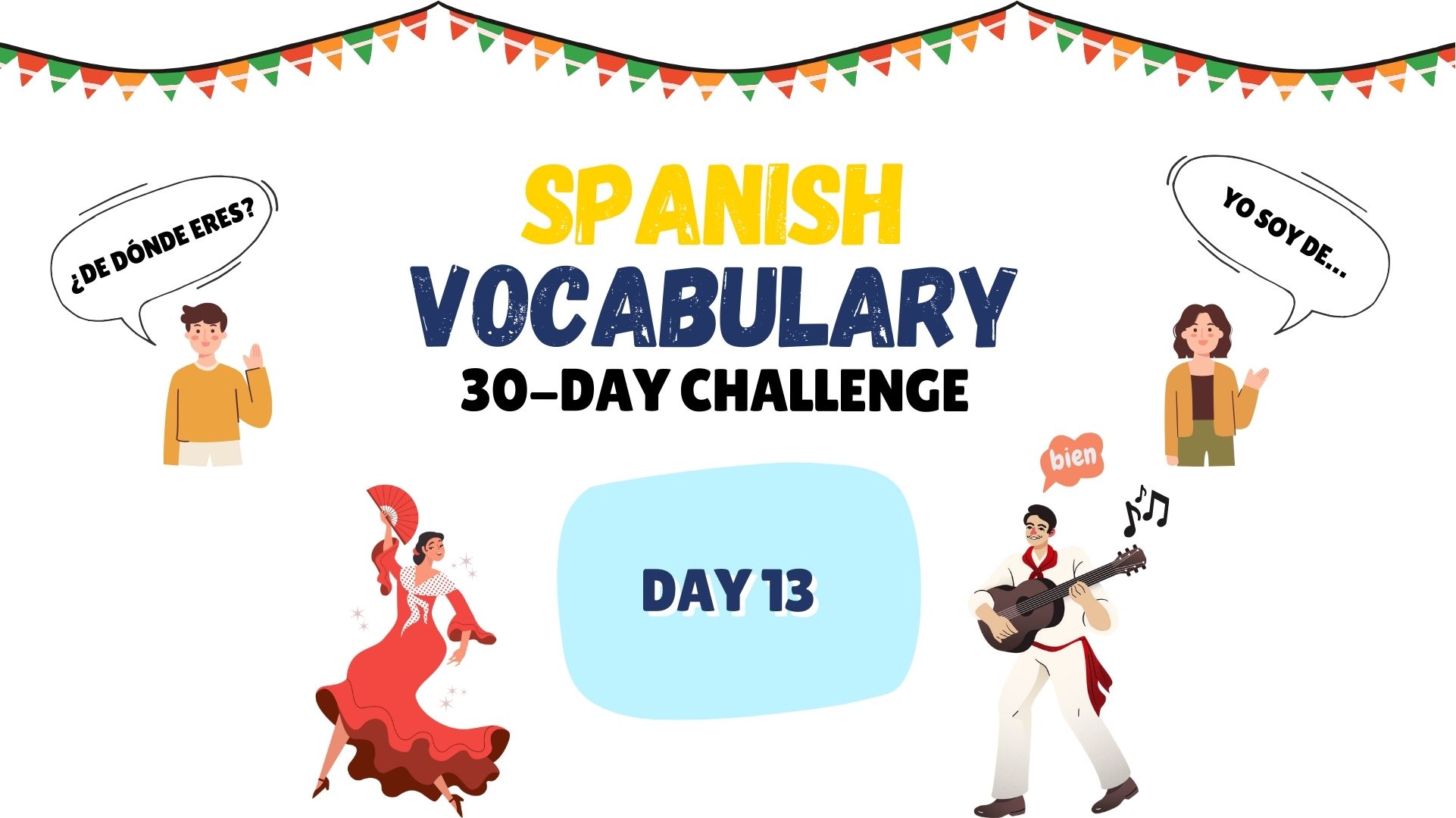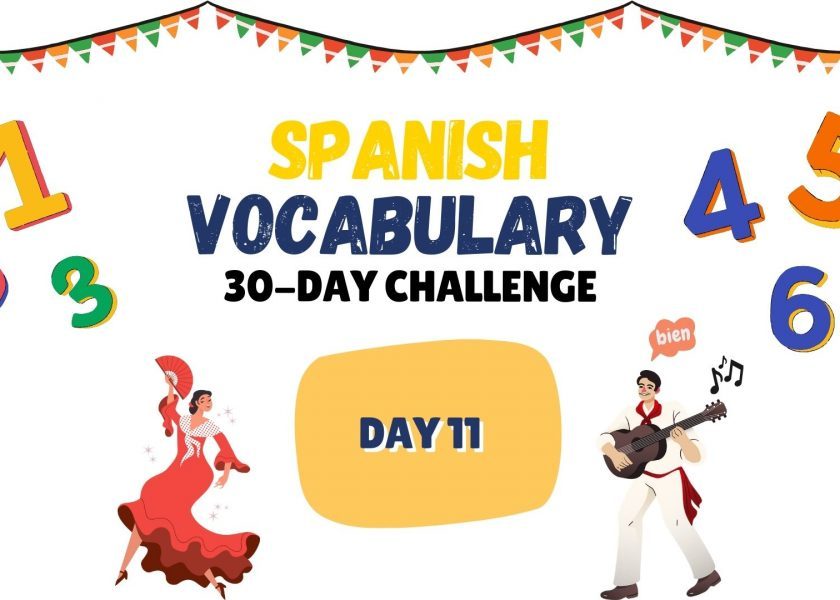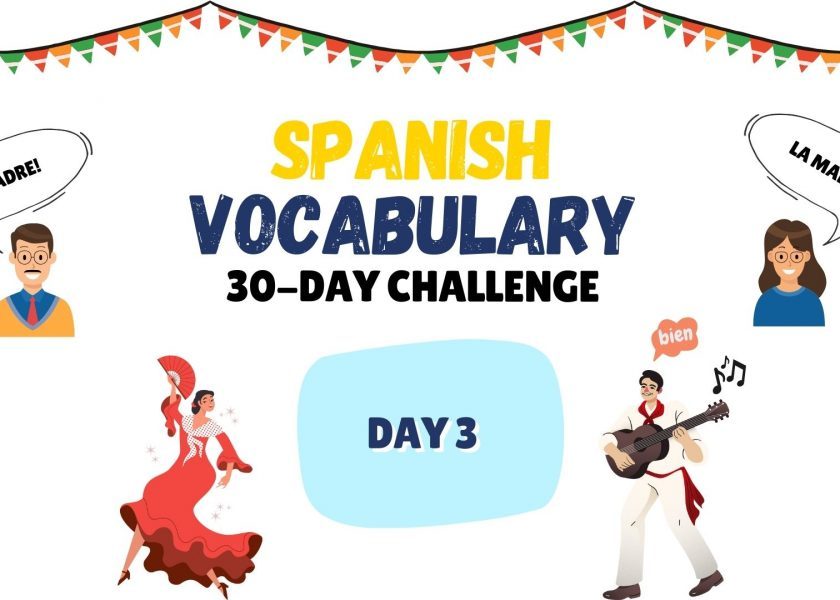
Day 13: ‘¿De dónde es?’ Spanish vocabulary to ask and answer about one’s origin
Let’s continue our Spanish Vocabulary drills but this time, we’re going to learn how to ask for some more information. When meeting someone new, we often want to know more about their background and origins. In Spanish, there are simple phrases to ask where a person is from and where they currently live.
Take a look at them in the table below:
| ¿De dónde es? they dawn-they eys (‘d’ has a soft sound) | Where are you from? (formal) |
| ¿Cuántos años tienes tú? koo-aantos aanyos tee-yey-neys (‘t’ has a soft sound) | How old are you? (informal) |
| ¿De dónde eres? they dawn-they ey-reys (‘d’ has a soft sound) | Where are you from? (informal) |
| ¿Dónde vives? dawn-they vee-veys | Where do you live? |
| Yo soy de… yo soy they… (‘d’ has a soft sound) | I am from… |
| Yo vivo en… veevo eyn… | I live in… |
These simple conversational questions and responses allow you to share basic information about your origins and current hometown.
Why don’t we take a quiz and try to practice these phrases?
Select the correct option(s):
- I live in…
a) Vivo en…
b) Yo vivo en…
c) Soy de…
d) Yo soy de… - Where are you from? (formal)
a) Yo soy de Alemania?
b) ¿De dónde eres?
c) ¿De dónde es?
d) Vivo en Alemania - Where do you live?
a) ¿De dónde eres?
b) ¿De dónde es?
c) ¿Dónde vives?
d) ¿Dónde viver?
Let’s check the right answers:
- a & b – On day 9, we learnt that it is alright to use or not use the pronoun in the sentence. Therefore, both a and b are correct answers.
- c
- c
Building your Spanish vocabulary also means learning questions, phrases, and words that help you ask for information from other people. In the coming days, we will be focusing on building Spanish vocabulary around this.




